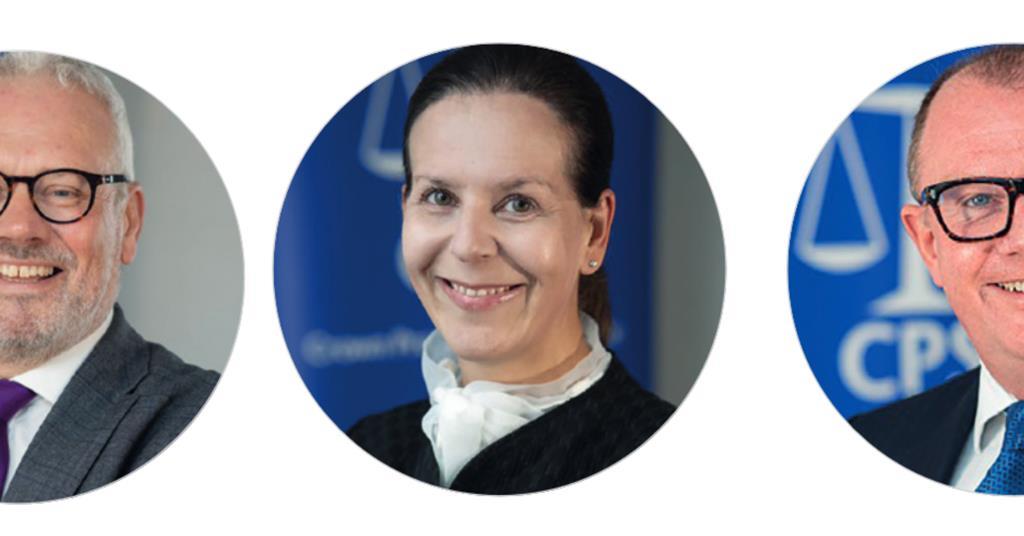
The risk that economic and organised crime poses to the public is continuing to grow in the UK, as the lines between organised criminality, fraud, money laundering and international crime become ever more blurred in an increasingly global and digital-first society.
Economic and organised crime touches all aspects of society and ranges from low-level frauds through to sophisticated cyber-enabled market manipulation. This results in the undermining of the UK’s international reputation and national economy and security, with unfair allegations that we are a ‘haven’ for this criminal activity and the money made from it.
Fraud now accounts for over 40% of all estimated crime, making it the most common crime type in England and Wales. With an estimated one in 16 people reported as victims of fraud in the year ending March 2023, anyone is at risk of being victimised.
To combat these crimes effectively, the Crown Prosecution Service brought together its separate specialist divisions on fraud, international, extradition, organised crime and proceeds of crime, under one directorate. Since its launch, the Serious Economic, Organised Crime and International Directorate (SEOCID) has used the specialist knowledge of tackling these crimes within our different teams to deliver justice, combat crime across borders and claw money back from criminals.
The sheer volume of economic and organised crimes poses operational difficulties for the whole criminal justice system. The scale, sophistication, and complexity, as well as its ability to span across multiple jurisdictions, cannot be overestimated.
Evidence underpinning cases has increased exponentially. Even in straightforward cases, the volume of digital material submitted as evidence can be immense and can result in an increase in the time required to prosecute these offences. We have been exploring how to address this and looking at opportunities to use new technologies, such as artificial intelligence, to facilitate the management of potential evidence and disclosure of unused material.
In the year ending March 2023, the CPS prosecuted 6,284 defendants where fraud was the principal offence, with the overall CPS conviction rate for fraud category prosecutions being 83.9%.
The government’s Economic Crime Plan represents a proposed step-change in its response to criminal finance. It sets out a blueprint for a whole-system crackdown on economic crime, combining the resources of the government, law enforcement and security agencies with the insight of the private sector.
It is hoped that this plan will be instrumental in strengthening our law enforcement capabilities in the face of these new challenges. Through the plan, the CPS will be supported by 60 additional members of staff over the next three years to increase the recovery of criminal assets, stripping criminals of their ill-gotten gains, stopping them from reinvesting that money into further criminal activity and using their funding against them.
In the last five years (2018 to 2023), over £480m has been recovered from CPS-obtained Confiscation Orders, ensuring that thousands of convicted criminals cannot profit from their offending. Of this amount, £105m has been returned to victims of crime by way of compensation.
It is undeniable that the rise of technology has introduced new challenges for law enforcement agencies to detect, investigate and prosecute these crimes. It is therefore essential that both investigators and prosecutors have the capability and agility to keep pace, in order to tackle the use of new technology and services, such as cryptocurrencies and the increase in cyber-enabled crime.
We are waiting for the Economic Crime and Corporate Transparency Bill to be passed in parliament so that we can use any new powers to further combat the ever growing and sophisticated threats posed by organised criminal gangs, and to hold to account corporates which unlawfully fail to prevent fraud taking place. The new legislation will also bring new laws to enable the swift recovery of suspected criminal crypto-assets.
Working collaboratively with investigative agencies at home and abroad is key to all our casework. Greater engagement between the police, prosecution and defence has been highlighted as best practice for determining the scope of prosecutions and helping conclude cases in a timely manner.
We will join our criminal justice partners and the government to help support and drive through on an operational level, where possible, the Home Office’s Fraud Strategy, which was published this year. This strategy sets out how together the criminal justice system will work with industries to remove the vulnerabilities that fraudsters exploit; with intelligence agencies to shut down fraudulent infrastructure; with law enforcement to identify and bring the most harmful offenders to justice; and with all partners to ensure that the public have the advice and support they need.
Thanks to the hard work of our prosecutors, we have witnessed criminals involved in some of the most serious, high-risk, and complex cases that we have seen as an organisation this year, be successfully prosecuted and brought to justice.
Even though SEOCID has had some great successes over the last 18 months, it never rests on its laurels. We are committed to developing further our specialist skills, technology and capabilities.
To address new challenges, it is essential that the CPS, along with the wider criminal justice system, continues to adapt and evolve its strategies and approaches to meet the ever-changing nature of crime. By working closely with law enforcement agencies, international partners and other stakeholders, the CPS can develop innovative and effective approaches to tackling these crimes and show that crime does not pay.
Andrew Penhale, Joanne Jakymec and Adrian Foster are chief Crown prosecutors
This post was originally published on this site be sure to check out more of their content.








